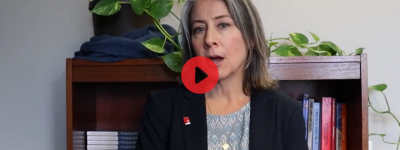
April 3, 2022 | Brandyn Woodard | Today's Readings
"Teacher, this woman was caught in the very act of committing adultery. Now in the law, Moses commanded us to stone such women. So what do you say?” (John 8:4)
When it is revealed, adultery – like other sins – has a rippling effect on everyone directly involved and on those who now think differently about the couple. What I’ve noticed is that how people respond to this most intimate of hurts frequently mirrors how they think, expect, or hope the world would respond too.
In today’s readings, we see a common thread. The first reading from Isaiah invites us to “Remember not the events of the past, the things of long ago consider not; see, I am doing something new!” (Isaiah 43:18-19). The responsorial psalm reminds us that “The Lord has done great things for us; Oh, how happy we were!” (Psalm 126:3).
Jesus’ life, death, and resurrection is that “something new,” and that “great thing.” It solidifies that no person is expendable, and that our own humanity is severely compromised when we behave as if some people’s lives are more valuable than others. It pushes us to resist the internal narrative that says your sins are unforgivable, but mine are worthy of God’s grace and second — or millionth — chance.
We see how this uncharitable mindset plays out in our world with our treatment of refugees, LGBTQIA+ folks, disenfranchised racial/ethnic groups, and, tragically, in the United States’ carceral system.
What if we acknowledged the harm we have all experienced — and caused — and remembered that we are part of the human family? What if we had the support and accountability needed to refrain from causing similar harm?
How different would our relationships, our justice system, and our world be if we not only listened to, but also offered Jesus’ admonition, grace, and love: “Neither do I condemn you. Go, and from now on do not sin anymore” (John 8:11)?
May this Lenten season and beyond be an opportunity for us to be honest about our individual, cultural, and national pasts, the harms we have had to deal with, and the ones we have caused others, unintentionally or otherwise. May we put in the work to create something new.
Bryan Stevenson, founder of the Equal Justice Initiative and author of Just Mercy, says “Each of us is more than the worst thing we’ve ever done.” Jesus knew and demonstrated this, not only for the woman who committed adultery, but also the condemning crowd of onlookers and would-be killers.
Let us be more like Jesus in our relationships and how we address harm.







